Introduction
Blockchain technology has been a buzzword for years, often associated primarily with cryptocurrencies like Bitcoin and Ethereum. However, its potential goes far beyond digital currencies. This revolutionary technology is now being adopted across various industries, transforming the way businesses operate and improving efficiency, security, and transparency.
In this article, we will explore the real-world applications of blockchain technology, shedding light on how different sectors leverage its capabilities to solve real problems.
Financial Services: Transforming Transactions and Security
The financial sector was one of the earliest adopters of blockchain technology, using it to streamline operations and enhance security. With blockchain, banks and financial institutions can reduce transaction times from days to minutes. Cross-border payments, which traditionally involved multiple intermediaries and high fees, can now be executed faster and more cost-effectively.
Moreover, blockchain’s decentralized nature minimizes fraud risks. Transactions are recorded on an immutable ledger, making unauthorized alterations nearly impossible. Smart contracts—self-executing agreements with terms directly written into code—further automate and secure financial transactions, ensuring compliance without the need for intermediaries.
Supply Chain Management: Ensuring Transparency and Efficiency
Supply chains are complex networks that require coordination across multiple stakeholders. Blockchain technology enhances transparency by enabling real-time tracking of goods from production to delivery. This reduces fraud, counterfeiting, and inefficiencies that often plague traditional supply chains.
For instance, major companies like IBM and Walmart have adopted blockchain to track food products, ensuring safety and compliance. By scanning a product’s QR code, consumers and businesses can access detailed information about its origin, transportation, and handling, building trust and accountability.
Healthcare: Enhancing Data Security and Interoperability
The healthcare industry handles vast amounts of sensitive patient data, making security and interoperability major concerns. Blockchain technology addresses these issues by offering a secure and decentralized system for managing medical records.
With blockchain-based electronic health records (EHRs), patients and healthcare providers can access accurate, up-to-date medical information while maintaining strict privacy controls. Furthermore, blockchain enables seamless data sharing between hospitals, insurance companies, and research institutions, improving diagnosis accuracy and treatment effectiveness.
Real Estate: Streamlining Transactions and Reducing Fraud
Real estate transactions involve multiple parties, extensive paperwork, and long processing times. Blockchain simplifies these processes by enabling secure digital transactions and reducing the need for intermediaries such as brokers and legal representatives.
Smart contracts facilitate the automatic execution of agreements when predefined conditions are met, eliminating delays and human errors. Additionally, blockchain’s tamper-proof nature ensures property records are secure, reducing fraud and disputes related to ownership and title deeds.
Voting Systems: Enhancing Electoral Integrity
The integrity of elections is crucial for democracy, yet traditional voting systems are often vulnerable to manipulation and fraud. Blockchain technology offers a transparent and tamper-resistant alternative that ensures fair and verifiable elections.
Through blockchain-based voting systems, votes are securely recorded on an immutable ledger, preventing unauthorized changes or deletions. Voters can verify their ballots without compromising anonymity, boosting trust in the electoral process. Some governments and organizations have already piloted blockchain-based elections to enhance transparency and participation.
Intellectual Property and Copyright Protection
Artists, musicians, writers, and creators often struggle with copyright infringement and unauthorized use of their work. Blockchain technology provides a solution by creating digital certificates of authenticity and ownership that cannot be altered or duplicated.
Through blockchain-powered platforms, creators can timestamp their work, proving originality and securing intellectual property rights. This also allows for automated royalty payments through smart contracts, ensuring fair compensation for artists without the need for intermediaries.
Automotive Industry: Revolutionizing Vehicle Tracking and Ownership
The automotive industry benefits from blockchain by enhancing vehicle history tracking, reducing fraud in second-hand car sales, and streamlining ownership transfers. Traditionally, verifying a vehicle’s history requires reliance on third-party databases, which may be incomplete or manipulated.
With blockchain, all details related to a vehicle—including previous owners, accident history, and maintenance records—are securely stored and easily accessible. This transparency helps buyers make informed decisions while preventing fraudulent activities like odometer tampering and title washing.
Education: Verifying Academic Credentials
Diploma fraud and misrepresentation of qualifications are persistent issues in the education sector. Blockchain technology addresses this problem by enabling institutions to store academic records securely, allowing employers to verify credentials instantly.
Blockchain-powered platforms provide a tamper-proof system where students can share verifiable digital certificates with potential employers or institutions. This eliminates the need for lengthy verification processes, reducing administrative burdens and improving efficiency in hiring and admissions.
Conclusion
Blockchain technology is no longer just a futuristic concept or a tool limited to cryptocurrencies. Its real-world applications span across numerous industries, enhancing security, efficiency, and transparency. From financial services and supply chains to healthcare and education, blockchain is transforming traditional systems and addressing longstanding challenges.
As adoption continues to grow, businesses and individuals must stay informed about blockchain’s evolving capabilities. Understanding and leveraging this technology can lead to improved operations, greater trust, and significant advancements across various sectors. The future of blockchain technology is promising, and its impact will continue to reshape the world as we know it.


